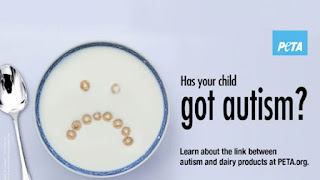Does PETA Go Too Far?

PETA, or "People For the Ethical Treatment of Animals," is an infamous animal rights organization, known for their outlandish and often controversial campaigns. In the past few years, it seems as if more negative press than positive has come out regarding the organization. PETA has made some offensive statements in the past that have definitely pissed people off, like saying that dairy can cause autism or comparing phrases that indicate cruelty towards animals, such as "bring home the bacon," to racist and homophobic slurs. You would think they would learn their lesson after the second or third time they have offended people, but nope. They keep going with insensitive and out of pocket remarks. Nothing is ever subtle about their marketing strategies. PETA uses several of the marketing appeals we have discussed in class, including need for sex, need to nurture, need to aggress, need for attention, and more. But the one they use most often is not included on our ...



